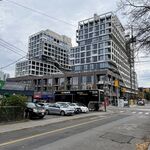I recongize the limitations of the average vs. the median number but it is still a worthwhile and reliable comparison imo...The TREB would never post that City prices have already dropped 18.44% from the peak because it would incite a mutiny and the local papers wouldn't unilaterally spark that debate either for fear of cannibalizing their dwindling advertising customers in the industry.
I predict that average prices drop further from the January number and by April 2009 the y/o/y drop will exceed 20% and the headlines will start appearing in the dailies and in cocktail conversations. From there it's anyone's guess but someone around the 2003-2004 price level sounds reasonable to me because that's when prices started to really get out of hand.
A few things...
1) There is absolutely nothing worthwhile or reliable about using a non-weighted average price to convey price statistics as is shown quite clearly when you look at the massive difference between them. There has undoubtedly been a price drop, but when weighted for each market, number of high end vs. lower end homes sold, etc., then the difference from peak to now is more in the realm of 7-8% - a full 50-60% less than the "average" and statiscally extremely significant if we are trying to compare apples to apples.
2) Local papers HAVE been doom and glooming for the last 6 months about the end of the real estate boom and using inaccurate statistics like non-weighted averages to their full effect, so I haven't seen any sort of fear of cannibalizing going on.
3) I agree that prices will fall a further. However, I don't know what cocktail parties you go to, but it's already been a subject of every one I've been to for the last six months. You're right about it being anyone's guess, but again, when looked at from income vs. RE price index, Toronto, even at today's prices is still affordable for the average income Torontonian and only, for about 8 months (June '07 - Feb '08), was above the affordability line. It's a very different situation in Alberta/BC.
As for a prediction...a correction like the US simply will not materialize as there is nowhere near the foreclosure rate and won't be, but I do think Toronto's RE will lose value until mid-2010 - a correction that will put it, in a properly weighted median of about 12-15% from peak (Jan. '08). It will remain that way thru 2012, then slowly ramp up again with 2008 prices sometime by 2015.
I just got back from a week in Florida and I can tell you that there is some serious trouble coming our way and we've been lucky thus far to avoid it, but, I also really believe that this is the opportunity Toronto's been waiting for to truly be labelled a world class city (which we are most definitely not right now). Already everyone from the New York Times to the Atlantic Monthly are writing about how Canada's the only solvent banking system in the world and countries are starting to send their people here to learn what we do. If we grasp this opportunity and the investment that can come along with it, in 10 years, Toronto will be a very very different place...and I'm typically a cynical optimist





